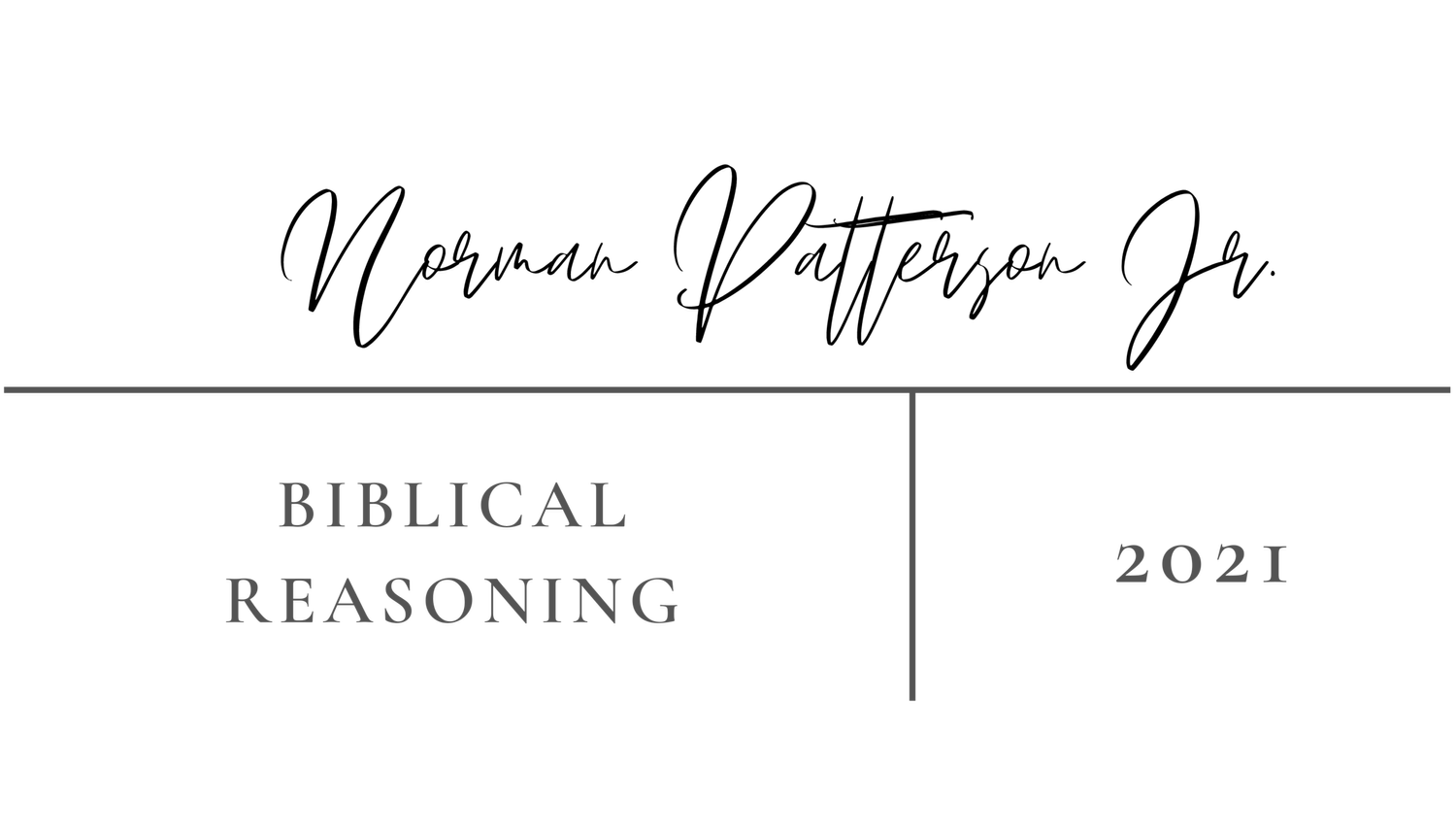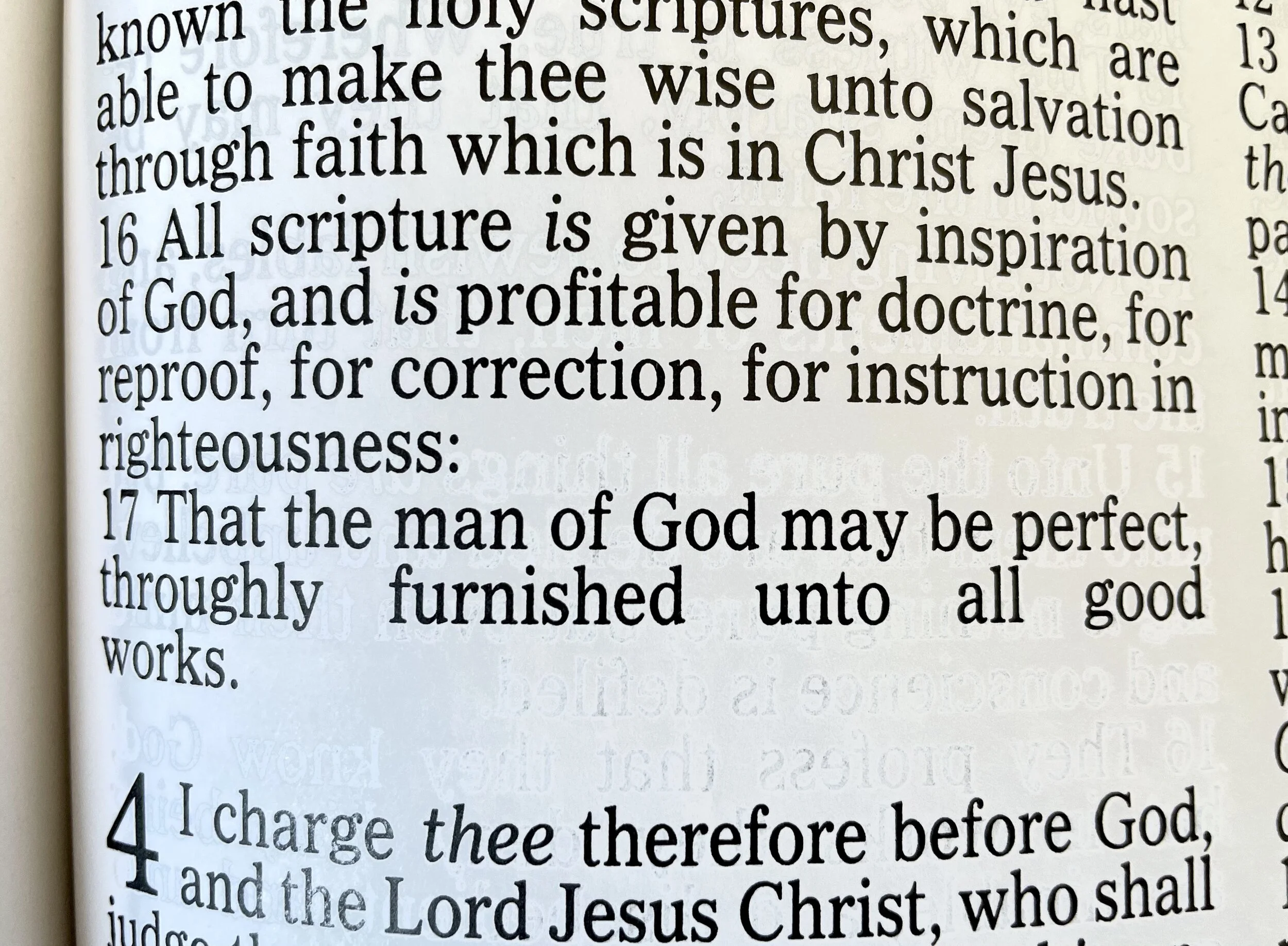2. Counterfeit Christianity: Authenticating the Bible
Introduction
Did you know there is such a thing as a "self-authenticating" document? I learned this as I acted as a Pro Se litigant in a Civil trial. Many State courts have "self-authentication" as part of their Rules of Evidence. They are often similar to Rule 902 of the Federal Rules of Evidence, which, for example, states that documents signed and sealed by a Notary Public are "self-authenticating." In other words, you do not need outside verification to prove the veracity of the document.
External Authentication
Counterfeit Christianity seeks to authenticate the Bible based on extrinsic evidence. Instead of taking the Bible at its self-testimony, people refuse to believe unless some outside source proves the Bible true. Within the pages of Scripture, God claims to be speaking directly in the Bible over three-thousand times. Add the times the inspired authors of the Bible declare that God spoke to and through them; the number is much higher.
There are many well-meaning Christian scholars with far more degrees than me who will disagree with me on this point. They claim that they must first authenticate the Bible by historical evidence, archeology, other ancient documents, etc., to persuade unbelievers the God of the Bible is worthy of obedience.
C.S. Lewis and Greg Boyd
Some go as far as to say that the Bible is filled with so much error that it cannot authenticate itself. For example, Dr. Greg Boyd talks about how C.S. Lewis helped him believe in a "Jesus" apart from the Bible. On page 21 in his book Inspired Imperfection: How the Bible's Problems Enhance its Divine Authority, Boyd writes:
What impressed me most about Lewis's argument was that he appealed to reason and history, not to a divinely inspired Bible, when making his case for believing in Jesus. Yes, Lewis appealed to the Gospels, but he appealed to them not as divinely inspired documents but simply as ancient documents that need to be critically evaluated the same way historians critically evaluate other ancient documents.
This is precisely what allowed me to begin to once again consider embracing faith in Jesus, despite all the problems that I knew were in the Bible. Whatever else might be said about these problems, they didn't substantially undermine the historical evaluation of the Gospels, and this didn't undermine Lewis's case for believing that the historical Jesus was the Son of God, as the Gospels present him.
In other words, everything but the Bible can serve to authenticate the Bible; this includes reason, history, other ancient documents, scholars, and so on. While Boyd states that the Bible "needs to be critically evaluated the same way historians critically evaluate other ancient documents," the net result is that historians and "other ancient documents" stand in judgment of the Bible.
Self-Defeating Non-Authentication
Here is a subtle but important point in understanding Counterfeit Christianity; whenever someone uses an external source to authenticate the Bible, that source now stands as the authority over the Bible. Instead of the Bible being self-authenticating, they believe they must prove the Bible to be true before it is worthy of being trusted.
This opens the door to all kinds of problems. How do we verify that the authenticator, be it a human or a document, is worthy of authenticating the Bible? This type of thinking collapses into absurdity. If an ancient document is used to prove the Bible, how do we know this historical document is authentic? If we trust that a historian has authenticated it, what standard do we used to verify that the historian is, indeed, trustworthy in his assessment?
Perhaps the historian has a degree from an accredited University, but who accredited the University? If we dig into the accreditation process, how do we know that the standards used to accredit the University were worthy of being used? Where did they get them? Perhaps the standards were compiled by a panel of people from years past. How do we know that these people are worthy of making these standards? And on and on it goes.
In the end, this type of authentication process regresses into an infinite regressional absurdity. Or it begs the question; that the authentication must be assumed for it to be considered authentic. But this self-authentication is founded upon man's fallibility and has no way to be authenticated from an outside objective standard.
Divine Authorship
The only way out of this conundrum is to take the Bible at its word, that it is the historical self-revelation of the one and only self-existing God; Father, Son, and Holy Spirit. The Bible does not need to have any outside person verify, authenticate, prove, or testify its authenticity. It is self-authenticating.
Well-Meaning but Mistaken Apologists
While I believe there are many sincere, gifted, and well-meaning Christian apologists whose mission in life is to prove the Bible's authenticity through outside sources, I think they're doing more harm than good. They are falling prey to the oldest Satanic lie in the Book, "Did God really say?" (Genesis 3:1)
The Bible Authenticates History
This is not to say that some historical fact can't correspond to a historical reality that is in the Bible, but it must be crystal clear that the Bible confirms the historical truth and not the other way around. For example, Josh and Sean McDowell, in their book Evidence that Demands a Verdict, have a whole chapter dedicated to The Historical Existence of Jesus starting on page 143. While it is interesting to see evidence that collaborates with the Bible, our faith must be in the Bible and not outside evidence. I know the evidence in McDowell's book is authentic when Scripture verifies it.
There is evidence that corresponds to what is found in Scripture because the Bible is a historical document, as well as the self-revelation of the self-existing Trinitarian God. The men and women in the Bible existed in various times and places. Since this is true, it is no surprise to find countless corroborating pieces of evidence. Why would we expect otherwise?
The Self-Authenticating Bible
It comes down to two choices; either an outside self-authenticating source must verify the Bible or the Bible self-authenticates. Counterfeit Christianity looks for external sources before believing the Bible. Biblical Christianity takes God at His word:
All Scripture is given by inspiration of God, and is profitable for doctrine, for reproof, for correction, for instruction in righteousness: That the man of God may be perfect, thoroughly furnished unto all good works. 1 Timothy 3:16+17




